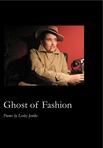Warning: None of This Is Necessarily Factually Accurate
Real disdain was reserved for Northern Kentucky. Cincinnati proved its moral superiority with Underground Railroad stops in rich folks’ homes, and by inculcating German immigrants into its religion of persistence. It had a river valley much like the Rhine’s , with walls of verdant hills on either side, glittering river running through. One persists by remembering what’s been left behind, and by striving to recreate it. Big-wheeled steamboats were enough like windmills. A barge was enough like a warrior’s body on a floating pyre, slow moving and soot-covered, that even the most skeptical immigrants found in their new country enough metaphoric resonance to satisfy. But Northern Kentucky was the South. It stewed like a fistful of tomatoes in its own juices. It bore its own syndicate and to enforce it, had the gall to invent the tommy gun . It was land designated just for hunting by Ohio’s Native Americans. It was a dark land, a bloody land. Escaped slaves longed to be rid of it as quickly as possible. Colts that are born to it are broken at two and run to death by five. To me it was just the state across the river—not much different from the state I lived in on this side of the river, and really just an extension of the same series of neighborhoods sprinkled like ellipses over the same series of hills—constant pauses punctuating a conversation in-progress since the glacier stopped here millions of years ago on its journey to no where in particular. The reason for my family’s stop in the Ohio River Valley is almost as mysterious. Beyond the fact that my paternal grandfather played drums in a few of Cincinnati’s jazz nightclubs , I'm unclear about my claim on the place and, subsequently, my claim on this story. Everything seems, always, so tremulous, like my own reflection in the downtown Lord and Taylor’s storefront after my mom told me, “Women used to get dressed up to go downtown. They even wore gloves.” When I was a teenager the city center was a museum: old stone buildings peopled by crowds of the sloppy, rumpled young. By nine in the morning they were making their way westward from Eastside suburbs and by six they were headed east in a reverse immigration I understood to be the natural and expected rhythms of her world. Still, I can't help but speculate about my grandfather, and whether he was really as good a drummer as they say—they meaning my dad—who after high school descended into a basement jazz club at Garfield Place where he pretended to be a man, got a taste of Kentucky bourbon , and listened to his father work out the kinks with visiting musicians doped up on too little sleep and God knows what else.
Published on September 24, 2012 06:00
No comments have been added yet.



